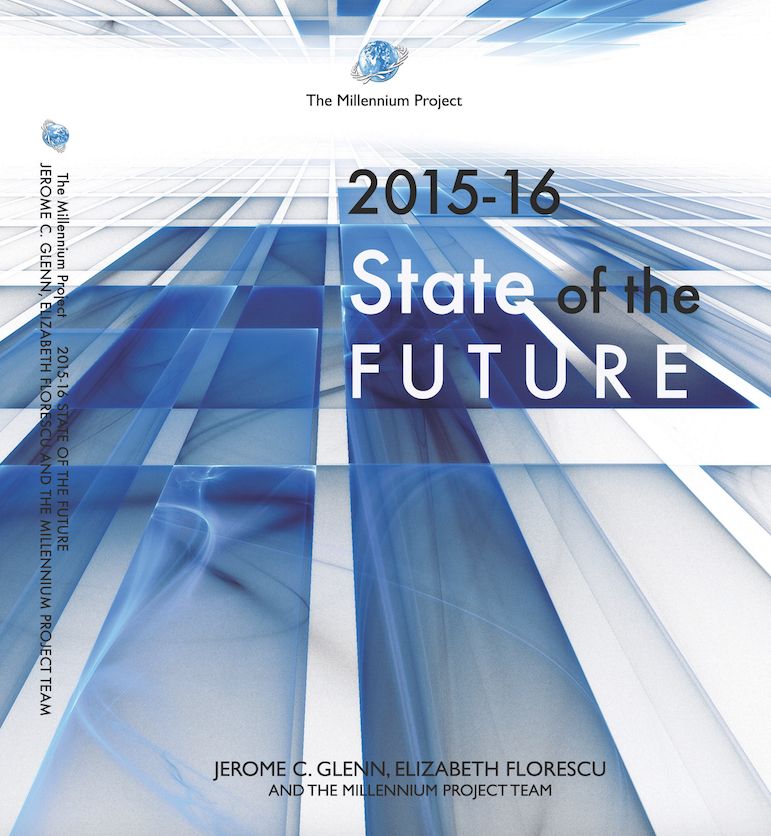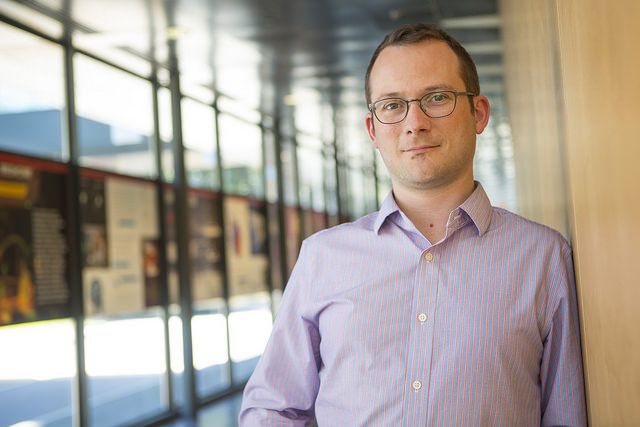The Millennium Project released today its annual “2015–16 State of the Future” report, listing global trends on 28 indicators of progress and regress, new insights into 15 Global Challenges, and impacts of artificial intelligence, synthetic biology, nanotechnology and other advanced technologies on employment over the next 35 years.
“Another 2.3 billion people are expected to be added to the planet in just 35 years,” the report notes. “By 2050, new systems for food, water, energy, education, health, economics, and global governance will be needed to prevent massive and complex human and environmental disasters.”







